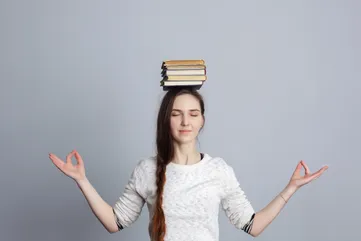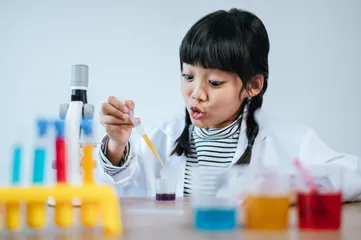Dopamine System
The dopamine system is your teen's internal motivation engine, releasing this neurotransmitter to signal reward and drive action-seeking, but ADHD brains need more intense stimulation to activate it.
You're not alone
If your teen only seems motivated by video games, waits until last minute for deadline pressure, or can't start boring tasks despite consequences, their dopamine system needs higher activation. This is core to ADHD, not a character flaw. Understanding dopamine differences explains so many "why won't they just..." moments that frustrate families.
What it looks like day to day
Student
Your teen hyperfocuses on building Minecraft worlds for hours but can't spend 10 minutes on homework without their brain screaming for stimulation.
Parent
You watch bewildered as your teen procrastinates until panic sets in, then suddenly completes everything in a deadline-fueled frenzy.
Tiny steps to try
Work with the dopamine system rather than against it.
- 1
Gamify tasks
Add points, levels, or challenges to boring tasks. Make homework a speed run or competition.
- 2
Immediate rewards
Don't wait for report cards. Celebrate small completions immediately with praise or privileges.
- 3
Novelty injection
Change location, materials, or approach regularly. New equals dopamine release.
- 4
Background stimulation
Music, fidgets, or even TV can paradoxically help focus by raising baseline stimulation.
- 5
Artificial urgency
Use timers and mini-deadlines to create the pressure that activates focus.
Why dopamine differences matter
ADHD brains have lower baseline dopamine, requiring higher stimulation to feel motivated or focused.
Dopamine system challenges:
• Chronic understimulation feels like boredom
• Difficulty with delayed gratification
• Seeking high-stimulation activities constantly
• Struggling with routine or repetitive tasks
• Hyperfocus on high-interest activities
• Difficulty self-motivating without external pressure
This isn't laziness or lack of caring. It's a neurological difference in how the brain processes reward and motivation.
Ready to help your teen thrive?
Get personalized 1-on-1 coaching to build better habits and boost grades. Join 10,000+ families who trust Coachbit.
Frequently Asked Questions
Does this mean my teen is addicted to stimulation?
Not addicted, but neurologically requiring higher stimulation for normal function. Like someone with poor vision needs glasses, ADHD brains need more dopamine activation. High-stimulation seeking is self-medication, not addiction. Providing healthy stimulation reduces problematic seeking behaviors.
Will medication fix dopamine problems?
Stimulant medications increase available dopamine, which is why they help many with ADHD focus and motivate. However, medication works best combined with environmental strategies and understanding. Some teens need to learn to work with their dopamine system even with medication support.
Related Terms
ADHD (Attention-Deficit/Hyperactivity Disorder)
ADHD is a neurodevelopmental condition where the brain's executive function system works differently, affecting focus, impulse control, and activity levels in about 5-10% of children.
Executive Function
Executive function is your brain's management system that helps teens plan, focus, remember instructions, and juggle multiple tasks successfully.
Hyperfocus
Hyperfocus is an intense state of concentration where your teen becomes so absorbed in an activity that they lose track of time and everything else around them.
Task Initiation
Task initiation is the ability to start tasks without excessive procrastination, even when the task feels boring, overwhelming, or difficult.
Related Articles

Balance Exercises: An Alternative Treatment for ADHD
A breakthrough in neuroscience shows that easy balance training exercises done at home can improve brain functioning as an alternative treatment for ADHD.
Read article
Have You Heard of BDNF?: The Super Molecule of Learning
BDNF is a group of proteins made in the brain which strengthen connections in the brain and improve learning. BDNF production can easily be fast-tracked.
Read article
